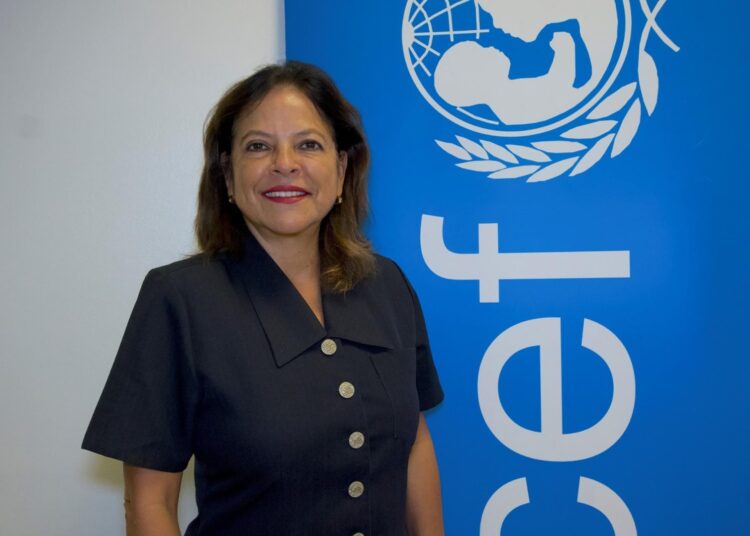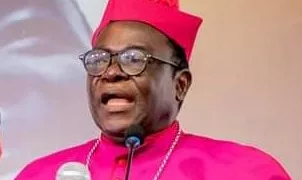There are approximately five million children in Nigeria who are ten years of age. By this age, these children should be able to read and understand simple text and solve simple math problems. However, fewer than 2 million Nigerian children can perform these tasks. Only 27 percent of Nigeria’s 7- to 14-year-olds can read, write and count, far below other countries of the same development status. Learning poverty is particularly acute for the poorest children (96 per cent), children living in rural areas (87 per cent) and those living in the Northeast (87 per cent) and the Northwest (88 per cent).
Foundational skills such as reading and solving basic math problems allow for cognitive development and acquisition of more complex skills. When we fail to provide these skills to children in the first three years of schooling, learning becomes an increasingly frustrating experience. The consequence is high levels of dropout (42 per cent of students drop out between primary 1 and the first year of Junior Secondary School), fueling the out of school problem.
So, what is driving high levels of learning loss in Nigeria?
First is the quality of teachers. There are low levels of teacher competency and pedagogical skills. 50 per cent of teachers in basic education in Nigeria lack minimum teaching qualifications.
Second and related to the first, is the limited capacity of teachers to assess students in classrooms using simple diagnostic tools that tell what children know and can do.
Third, is the inconsistent use of mother tongue in the first three years of schooling, a strategy proven to be highly effective in improving literacy levels globally and locally. But mother tongue is only as effective as the extent to which teachers are trained to teach in it and teaching and learning materials are available in the classroom.
Fourth is the low and regressive spending on education in Nigeria. Education allocation was a mere 1.2 per cent of GDP in 2021 which is well below the international benchmark of 4-6 per cent. Education expenditure is consumed by recurrent expenses such as teacher salaries leaving little to invest in improving the quality of education. This results in overcrowded classrooms-teacher student ratios reach 1:124 in the Northeast and a chronic shortage of qualified teachers. For example, an additional 195,000 teachers are needed, nationwide, at the primary level.
The good news is that Nigeria has generated local evidence on what works to improve literacy and numeracy based on global best practices. Structured pedagogy, a model that combines continuous professional development of teachers involving mentoring and coaching, with lesson plans and high-quality teaching and learning materials in local languages, and uses formative assessment, can significantly improve numeracy and literacy levels in local language and English. Through various interventions such as the Reading and Numeracy Activity (RANA) and Kanuri Arithmetic and Reading Initiative (KARI) tested in the Northeast and in the Northwest, in formal schools and in Integrated Qur’anic Schools, these models have consistently improved foundational literacy and numeracy in Grades 1-3.
Even when children exit grades 1-3 with learning gaps, they can quickly catch up through programs known as Teaching at the Right Level (TaRL). This innovative method groups children in grades 4-6 according to their learning level rather than grade to improve literacy and numeracy levels.
These models are now active in local government areas in 15 states, but we must do more. To consistently generate the type of human capital needed to power the economy and to build a socially cohesive society, Nigeria needs to scale structured pedagogy to all schools and in all local government areas. This will require more investment in the quality of education and repurposing of existing budget lines on teacher development and teaching and learning materials to what we know works. It also demands regular competency-based assessments at school, state, and national level to track progress and a coming together of the education sector annually to evaluate progress and to course correct.
Given the scale of the challenge and the urgency to act, we should all partner, with Government. It needs coordinated and harmonized action by all partners around a common framework of action.
The starting point must be to galvanize the education sector around the common purpose of ending the learning crisis. We can and must do it. We owe it to the 106 million children of school age in Nigeria who have a right to education and to a bright, prosperous life.
* Cristian Munduate is the Representative of UNICEF in Nigeria. Prior to joining the Nigeria office, Cristian was the United Nations Resident Coordinator in Panama. She brings over 30 years of experience in development work, including 18 years of service to the United Nations Children’s Fund (UNICEF), where she served as Representative in Cambodia, Ecuador, Costa Rica and Honduras and as UNICEF Deputy Representative in Pakistan. Prior to joining the United Nations, she was Minister of Social Welfare in Guatemala.





